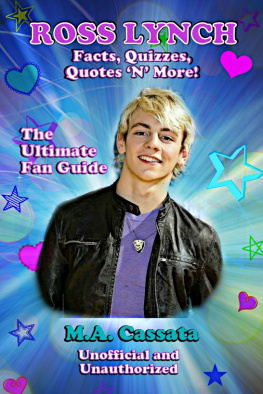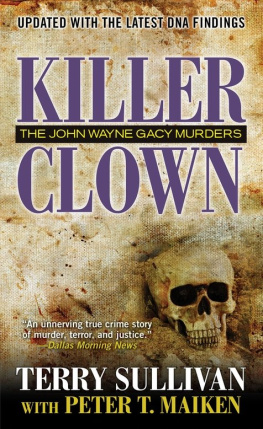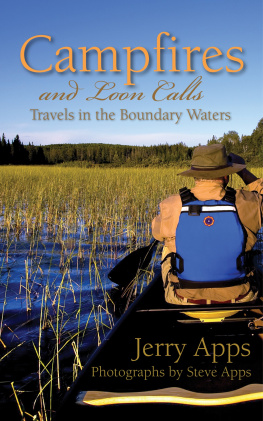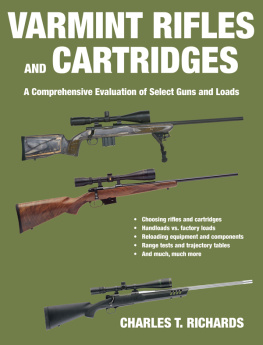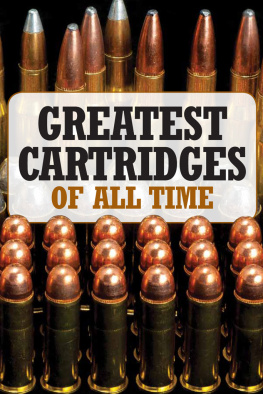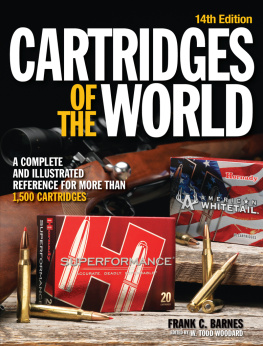COURTROOMS, CARTRIDGES,
and CAMPFIRES
LAWYERING ON THE LAST FRONTIERALASKA
Wayne Anthony Ross, B.S, J.D
PO Box 221974 Anchorage, Alaska 99522-1974
ISBN 978-1-59433-298-2
eBook SBN 978-1-59433-299-9
Library of Congress Catalog Card Number: 2012940467
Copyright 2012 Wayne Anthony Ross, B.S, J.D
All rights reserved, including the right of
reproduction in any form, or by any mechanical
or electronic means including photocopying
or recording, or by any information storage or
retrieval system, in whole or in part in any
form, and in any case not without the
written permission of the author and publisher.
Manufactured in the United States of America.
This book is dedicated to Barbara,
who chose to share a life with me in Alaska, far from anyone she knew.
And, I am forever grateful.
Anchorage, Alaska March, 2012.
Chapter 1
The Basketball Star
How does a kid from the South Side of Milwaukee end up as an attorney in Anchorage, Alaska?
In my case, it was simply because I couldnt play basketball.
I wasnt very good at baseball either.
In fact, as a kid I wasnt very good at any organized team sports. My lack of skill in sports, however, didnt stop me from trying. And my trying caused me some problems and a lot of embarrassment.
Most kids on Milwaukees South Side in the 1940s and 1950s were Catholic. Of course, if there were kids on the South Side who werent Catholic, I didnt know them. Thats because Catholic parents didnt let their Catholic kids play with non-Catholic kids.
I did have a buddy who was Lutheran, but he lived next door. My folks apparently realized they couldnt stop me from playing with any kid who lived next door. They probably eased their consciences by reasoning that Lutherans were pretty close to being Catholic and Lutherans would still be Catholic if they hadnt been led astray, some years earlier, by a Catholic named Martin Luther. So it was OK for me to play with that Lutheran kid from next door. My folks probably secretly hoped that Id convert the next-door kid back to Catholicism, right after I fulfilled their greatest hope that Id become a priest.
Like most other Catholic kids on Milwaukees South Side, I attended a Catholic grade school. Such schools had basketball and baseball teams that played each other in what was known as, if I recall, the Catholic Conference.
I signed up for basketball. The coach was one of our parish priests, Father Nuedling. I was about five foot nothing tall, and so skinny if I stood sideways in a room, nobody knew I was there. Father Nuedling was interested in having Saint Ritas, his parish, field the winning Catholic Conference team. So Father did his very best to play the good players and avoid putting the bad players in a game.
Since I wasnt a good player, I didnt get to play much. Since I was, in fact, a very bad player, I usually sat on the bench until our team was about forty points ahead. Only when the games outcome was not really in doubt would the bad players like me get to play.
My older sister, Kay, was dating the star center for the Marquette University basketball team. Kay wanted to bring her date to see her little brother play basketball. I didnt want her to come. I especially did not want her to bring her date. After all, what fun could it have been for my sister or her date, a big-shot basketball player, to watch me sit on the bench the whole game? And what fun could it be for me to know they were watching me sit on the bench?
Despite my continued protestations, however, Kay and her boyfriend showed up at one of my games. While I warmed the bench, somehow our team got forty points or more ahead. Then I heard Father Nuedling utter those long-sought magic words: Ross, get in there! Suddenly I was in the game! Determined to look good in front of my sister I managed to get ahold of the ball, skillfully dribbled it down the court, and quickly made my first basket! The crowd went wild!
Unfortunately, I had made the basket at the wrong end of the court. Wrong-way Corrigan had nothing on me!
That was the only basket I ever made in organized basketball. Father Nuedling took me aside and kindly suggested that perhaps organized sports were really not my forte. As a result, I gravitated to fishing, then to hunting, and finally to Alaska. But Im getting ahead of my story
Chapter 2
My Lineage Cant Be Traced To The Mayflower
Some people can trace their lineage back to the Mayflower, or at least the Revolutionary War. I can trace mine back only three, maybe four generations. If any of my ancestors were in the Revolutionary War, they were probably Hessian troops supporting the British. Thats because my genealogical research indicates that most of my ancestors, like the Hessians, came from Germany or Switzerland.
My fathers grandfather-my great-grandfather-came from Germany in the second half of the nineteenth century. His name was John Meyerholtz and, according to family tradition, he settled first in Cairo, Illinois.
As my father told the story, John Meyerholtz lived with a Polish family in Cairo and to honor them he changed his name to Rogowsky. My mother told a somewhat different version of the story. According to Mom, shortly after John Meyerholtz arrived in the United States, he was walking down the streets of Cairo and decided that he needed a good American name. Seeing the name Rogowsky on a butcher shop, my great-grandfather thought that sounded like what he imagined was a good American name, and he chose it for his own.
Whatever version is correct, my grandfather Anton, and my father Raymond were Rogowskys until they changed the name to Ross in 1927.
John (Meyerholtz) Rogowsky married Amelia Gajewski and they had at least eight children.
One of them, my grandfather Anton, was born in LaCrosse, Wisconsin. While there Anton met my grandmother, Emma Kokta. Her father, Joseph Kokta, was a LaCrosse policeman. On my office wall is an old photograph of my great-grandfather Joseph in his LaCrosse police uniform. With his nightstick and walrus mustache, Joe Kokta looks like a guy you wouldnt have wanted to mess with.
My paternal grandparents, Anton and Emma, were married in 1900 and my father was born in 1903. Later Anton moved his family to Milwaukee where he went to work for Allis-Chalmers Manufacturing Company. Allis-Chalmers, in addition to making the orange tractors for which they were most famous, also manufactured steam turbine generators. My father always held that Anton, my grandfather, was a trouble-shooter for Allis-Chalmers. Dad said his father was sent all over the country, and to every province in Canada and Mexico to maintain and repair Allis Chalmers turbines.

This photo of my great-grandfather, Joseph Kokta,
hangs on my office wall.
My mothers family, the Steiners, also came from Germany in the second half of the nineteenth century. Martin Steiner, my great-grandfather came to America in 1872. He married Maria Waldvogel, who also immigrated here that same year. Martin and Maria had thirteen children, one of whom died in infancy. My grandfather, Louis, was one of the twelve surviving kids.
Louis married Anna Ofenlock and they had four children, my mother Lillian Steiner being the youngest.




